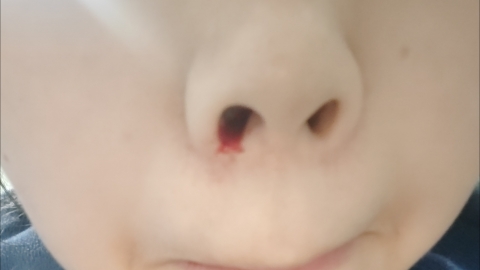Can a child still have a blood test after drinking water following a nosebleed?
Generally speaking, whether a child can have blood tests after drinking water following a nosebleed needs to be determined based on specific circumstances. If only a small amount of water was consumed and the blood test does not include indicators easily affected by diet, such as blood glucose or blood lipids, testing is usually feasible. However, if a large quantity of water was consumed, or if the test involves blood glucose, lipids, or similar indicators, immediate blood testing may affect the accuracy of the results and is generally not recommended. Detailed explanations are as follows:

If a child drank only a small amount of water after experiencing a nosebleed and the required blood test involves parameters unaffected by food intake, such as a complete blood count (CBC) or blood typing, then blood testing can generally proceed normally. A small amount of water entering the body will not significantly interfere with the detection of components in the blood, such as red blood cells, white blood cells, and platelets, thereby accurately reflecting the body's condition.
However, if a child drank a large amount of water after a nosebleed or if tests for blood glucose, lipids, or similar parameters are needed, immediate blood testing is not recommended. Drinking excessive water may dilute the blood, potentially causing deviations in certain CBC indicators. Moreover, tests for blood glucose and lipids typically require fasting, and water consumption may affect the accuracy of these results, failing to reflect the body's actual metabolic status accurately.
To ensure accurate blood test results, if blood testing is necessary after a nosebleed in children, water intake should be minimized. Additionally, proper care should be taken post-nosebleed to prevent the child from picking their nose, keep the nasal cavity moist, and reduce the likelihood of recurrent bleeding.




